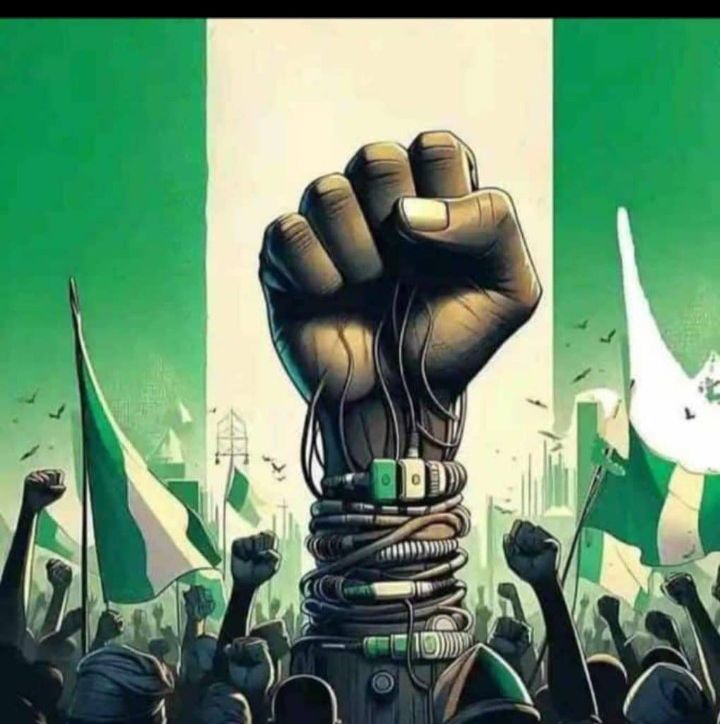Written by Stevenie Michaels
The August 1 national protest against hunger, which was supposed to be peaceful, turned violent on its first day in several Nigerian states. Angry youths and hoodlums looted businesses, set corporations ablaze, destroyed properties, police stations, and vehicles, leaving citizens in dismay.
The protest, which aimed to urge the federal government to address various economic issues, including reducing fuel prices, refining crude oil, and opening borders for a free market economy, lost its substance as it erupted into violence.
Despite heavy security presence and warnings, protesters threw objects at the police, leading to the use of teargas, which resulted in injuries and deaths in some states.
The protesting masses, led by civil society organizations, had planned to prompt the federal government to reduce school fees, subsidize hospital bills, pay graduates a minimum wage until they get employment, and implement other demands. However, the violent turn of events has made it uncertain whether these demands will be met.
The federal government, led by President Bola Tinubu, had called for deliberation and asked for more time to show the results of its policies, but this was met with rebuff, leading to the protest.
Essential services, such as journalism, the Nigerian Army, Police, Immigration, Navy, and Hospitals, were put on alert, and toll lines were released for emergency purposes. Journalists on duty were arrested in some states.
While some states like Osun, Oyo, and Lagos held peaceful protests, others like Ondo and Ekiti did not join the protest at all. Some states showed policemen sharing pure water with peaceful protesters as a form of solidarity, contrary to the violent nature of the protest in some northern regions.
Government palliatives were looted in Benin, Edo state, the APC party secretariat in the north was burnt down, and the Nigerian Communication Center was looted and razed, among other crimes committed.
With the protests expected to last for at least 10 days, fuel stations, businesses, offices, eateries, markets, and others were locked up, and most streets deserted.
The question remains, will this protest solve Nigeria's economic problems? Will the government allow the protests to bring insecurity into the states, and when will the protest be stopped due to its violent nature?
The #EndSars saga, which occurred in October 2020, led to loss of lives and properties, and most affected businesses are yet to recuperate. While kudos are given to states like Rivers and Imo where protests are held peacefully, there is a tendency that a state of emergency may be declared in some Nigerian states due to the EndBadGovernance national protest. So, we ask, which way Nigeria?"


